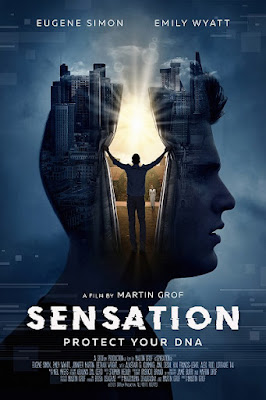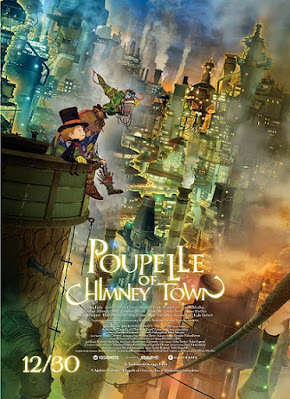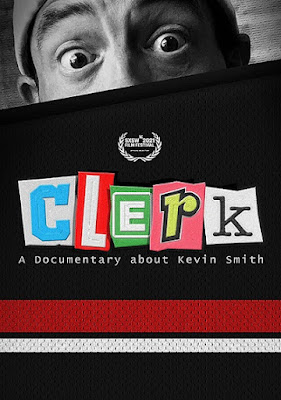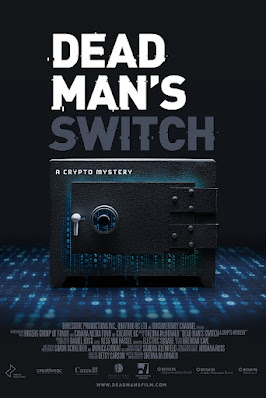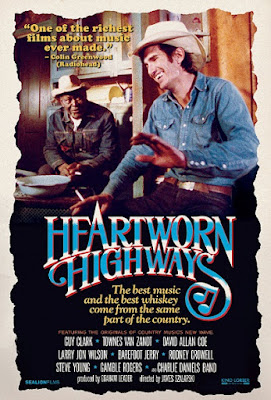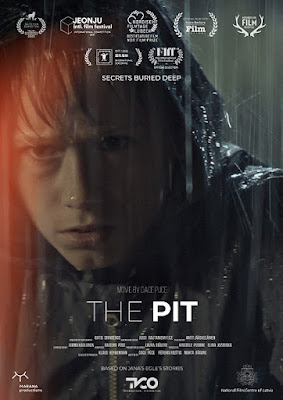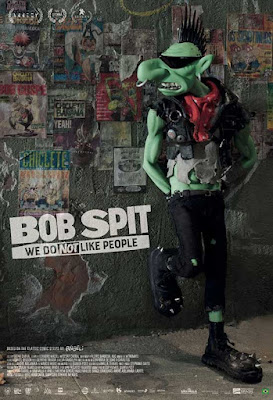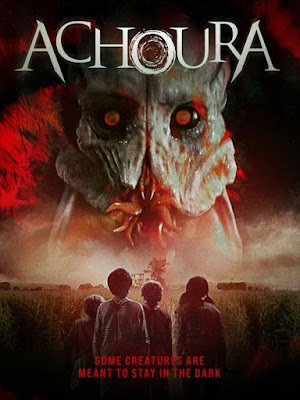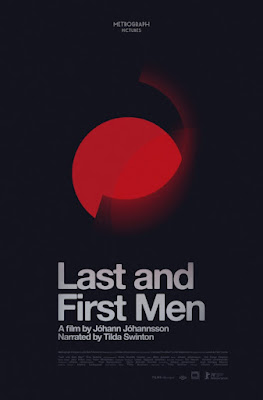If we let the CCP blatantly violate the
Sino-British Joint Declaration, openly turn Hong Kong into a police state, and
engage in hostile militarism throughout the South China Sea, maybe they will be
satisfied and start acting nice. After all, appeasement was a smashing success
when Hitler was given the Sudetenland, right? Actually, it was Neville Chamberlain’s
agreement that gave appeasement the bad name it deserves. Young British foreign
office bureaucrat Hugh Legat sees that infamous history unfold as an aide to
Chamberlain in Christian Schwochow’s Munich: The Edge of War, based on
Robert Harris’s novel, which opens today in New York, in advance of its January
21st premiere on Netflix.
Initially, Legat is more concerned with helping
Chamberlain prevent a European war than resolving the Cold War brewing between
him and his wife. It is really bad timing when he is attached to the Prime Minister’s
Munich delegation and also quite a surprise. It turns out Paul von Hartman, a
German government interpreter, pulled some strings with his military contacts
to request Legat’s presence. They were friends at Oxford, but had a falling out
over Hitler. At the time, von Hartman was an enthusiastic supporter, but now
that he knows the Fuhrer’s true intentions, he is profoundly alarmed.
Von Hartman believes elements in the military
will turn against Hitler Valkyrie-style if the British hold firm on their
commitments to Czechoslovakia. He also has a damning document that spells out Hitler’s
expansionist military plans in detail. He needs Legat to help him convince Chamberlain,
but even if his old friend agrees to help, it is highly questionable whether
the war-averse PM will listen.
Ben Powers’ adaptation of Harris is a really
smart thriller of espionage, politics, and bureaucratic in-fighting. However,
some of its implications are highly debatable. Mild Spoiler: Edge ultimately
presents an extremely revisionist defense of Chamberlain, arguing he bought
time with his non-agreement for England to rebuild its military. Yet, on the
other hand, it also posits a potential resistance to Hitler that was undercut
by Chamberlain’s appeasement and obliquely implies Hitler’s also needed time to
steel the resolve of the German people.
In any event, Schwochow (who has previously
helmed sensitive historical dramas, like The German Lesson, West, and The Tower) mines a good deal of suspense from the brainy material and maintains
even more tension regarding the fates of Legat and von Hartman. George Mackay
and Jannis Niewohner nicely humanize the cerebral main characters and portray
their complicated friendship with surprising poignancy down the stretch.
Wednesday morning, Hong Kong Cantopop star, democracy activist, and LGBTQ advocate Denise
Ho was arrested, along with five independent journalists with Stand News, where
she was once a board member. Her standing as one of Hong Kong’s most prominent
out-and-proud celebrities was not an unfortunate drawback for the CCP’s
quislings. It was a bonus. All human rights, press advocacy, and LGBTQ
organizations must speak out against her unjust arrest and that of the five
Stand News journalists. It is also worth noting the CCP did this just over a
month before hosting the 2022 Winter Olympics. The timing shows total, contemptuous
disrespect for the IOC, but the CCP obviously considers them bought and paid
for—and no doubt they are right about that. In light of Ho’s arrest, here is a
repost of her documentary profile from last year:
It is hard to hold back the tears watching Cantopop
idol Denise Ho and her fellow democracy activists in this film. Not just
because they are inspiring—although that is certainly true—but because the sense
of hope it documents was dealt such a harsh setback yesterday. As of today, 7.4
million Hong Kongers are no longer free and we let it happen, because we were more
preoccupied with Trump’s tweets and our own grievances. Democracy died not in darkness,
but the plain daylight of our disinterest. Viewers get a sense of the Hong Kong
that was potentially lost in Sue Williams’ Denise Ho: Becoming the Song.
Denise Ho is everything the media usually celebrates.
She is an immigrant, who moved to Canada with her family in the late 1980s, only
to return to Hong Kong, to pursue a career in music. She was the protégé of
Anita Mui, who was widely dubbed the HK Madonna for her sexually empowering stage
persona. Ho also became the second notable Cantopop celebrity to come out of
the closet, following the example of her close friend, Anthony Wong Yiu-ming.
So, what was it about the Lesbian artist that was so incompatible with the
values of Western corporations like Lancome that they dropped their sponsorship
deals? She joined the 2014 Umbrella protests for greater democratic governance
in Hong Kong.
Filming in the wake of the 2019 Extradition
protests, Williams follows Ho as she takes a more DIY approach to touring. The
star who used to perform in stadiums across Mainland China now books smaller,
more intimate clubs in Hong Kong and around the world, for the HK diaspora. Of
course, for Ho the money is not important. If anything, she has forged a closer
connection with her fans.
If an episode of South Park that satirizes the Chinese Communist Party (CCP) was conspicuously excluded
from an American streamer’s Hong Kong site, Trey Parker and Matt Stone would skewer
them for it. However, Disney+ did exactly that when it censored the episode of The
Simpsons wherein Homer Simpson visited Beijing for its HK customers.
According to google, there has been no response from Matt Groening yet. If you
live in Hong Kong, you can’t watch “Goo Goo Gai Pan” (S16 E12), but the rest of
us still can, for now.
Homer
has an awkward relationship with his sister-in-law Selma Bouvier, but when she
enters menopause, he agrees to pretend to be her husband, to facilitate her
Chinese adoption. Naturally, their romantic chemistry is a bit dubious,
attracting the suspicions of Madame Wu, the chief adoption bureaucrat (played
by Lucy Liu).
This
being The Simpsons, there are plenty of slams on America (mostly easy groaners). However, writer
Dana Gould also aimed a number of clever barbs at the CCP. The one most likely
to offend the CCP would be the briefly seen Tiananmen Square Monument reading: “on
this site, in 1989, nothing happened.” So, Disney+ is literally self-censoring
a joke about the Communist Party censoring history. How sad is that? Especially
since it shortly preceded the removal of Tiananmen Square memorials across Hong
Kong, including the notorious dismantling of the Pillar of Shame statue at the University
of Hong Kong.
His X-Men/Tomorrow People superpowers are in Andrew Cooper’s DNA.
Apparently, so is stupidity. When Cooper submits his DNA test to the
government, he inadvertently alerts a super-secret agency to his existence.
Supposedly, they want to train him, but we know what that really means in
Martin Grof’s Sensation, which releases Friday on VOD.
Actually,
Cooper only thinks it was the DNA test, but we know from the makes-no-sense
prologue creepy Dr. Daniel Marinus was on to him from the start. Regardless, Cooper
is whisked off to a Hogwarts from Hell to be trained to use his psychic powers.
Something is really wrong about the place. They also claim to be holding his mother
at an undisclosed location, for her own safety, of course. However, whenever he
manages to reach her on the phone, she warns him to get the heck out.
Grof
and co-screenwriter Magdalena Drahovska try to combine parts of Inception and
parts of The X-Men, but only the worst parts. Frankly, this is the kind
of film that looks like a major cast-member died during the production and had
to be edited out as best as possible. As a result, none of the head-tripping
spectacle makes any sense without a coherent sense of logic to underpin it all.
It was a powerful comic book tag-teaming, but it was completely
uncoordinated. In 1940, Jack Kirby and Joe Simon created Captain America (first
comic book appearance March 1941) to fight Nazis. That same year, DC produced a
special issue of Look Magazine, featuring Superman beating the heck out
of Hitler. Those were the days. In many ways, it was the big comic publishers’
finest hour and a good example of their “friendly rivalry.” Directors Don Argott
& Sheena M. Joyce chronicle the competition and occasional cooperation
between Marvel and DC in the 10-mini-episode Slugfest, produced by the
Russo Brothers, which is now streaming on Roku Channel.
Slugfest, based on the non-fiction
book of the same title by Reed Tucker (who also appears as a talking head) was
greenlighted for Quibi, but the bite-sized streaming service folded before it
could premiere, so here it is now. The six-to-eight-minute installments are
punchy, but together they do not tell a cohesive narrative.
Regardless,
the first installment, “Nazis are Bad,” is easily the best. You have to give
Simon and Kirby credit for taking on Hitler and the National Socialists. Cap
was a hit, but he was not universally popular. In fact, Mayor Fiorello La
Guardia dispatched police guards to protect Timely Comics (as Marvel was then
known) from violent Bund protesters. What would Kirby and Simon think to see
the current management of their old company desperately currying favor with a
CCP regime currently conducting a campaign of genocide in Xinjiang, just to get
Chinese release dates for their movies.
In
contrast, “Halloween Hero” is a fun footnote explaining how the first
unofficial Marvel-DC crossover story was hatched by a group of writers and
artists for both companies. Throughout the series, Argott and Joyce stage the
sort of quirky reenactments they used in Framing John DeLorean. The most
colorful is Ray Wise, slyly chomping on his cigar as the older Jack Kirby in “Funky
Flashman,” which chronicles the artist’s departure from Marvel to
DC, where he infamously mocked his old boss Stan Lee.
“Reverend
Billingsley” plays up the 1970s trippiness of Doctor Strange, which does not
have much to do with DC (and the whole Age of Aquarius vibe of the mini-sode gets tiresome). “Superman
vs. Spiderman” is a cool look at the crossover fans always wanted, but the two
companies never thought they could pull off (with an appearance from Ron
Perlman, as a bonus). Likewise, “Cancelled Cavalcade” is a fascinating
chronicle of the dramatic 1978 “DC Explosion” of titles and the sharp
contraction that soon followed.
“Kill
Robin” and “A World without Superman” both present solidly entertaining (and
weirdly nostalgic) pop culture histories of the murder of the second Robin and
the hyped-up “death of Superman,” which of course, it wasn’t. “Send in the
Clones” tries to do the same for Spiderman clone storyline, but it won’t have
as much traction for casual comics fans. However, the series ends with what
could be its second-best episode, “Just Imagine,” a tribute to Stan Lee, with
an emphasis on his once in a lifetime stint at DC, reimagining their signature
characters, the Stan Lee way.
Our juvenile hero is a chimney sweep, but this is not a cute, upbeat
musical, like Mary Poppins. It is dystopian anime. Apparently, Chimney
Town was conceived as a utopia, but it turned into a dystopia, as utopias
necessarily always do. Yet, earnest young Lubicchi just might save his society
from its fears and ignorance in Yusuke Hirota’s Poupelle of Chimney Town,
produced by Studio 4ºC, which opens in limited release this Thursday, for Oscar
qualification.
Poor
Lubicchi must constantly sweep the smokestacks belching smoke over his
steampunky city, because he is the sole support of his wheelchair-bound mother,
since the death of his beloved father. When he was alive, Bruno used to tell
stories about stars in the sky and other lands beyond the sea, but everyone assumed
they were fairy tales—except Lubicchi. He is still bullied over his father’s
stories, but Lubicchi could potentially face harsher repercussions from Chimney
Town’s inquisition, which does not take kindly to such heresy.
One
magical Halloween, a mysterious, cosmic heart lands in a landfill, where it
assembles and animates a literal “junk man.” Naturally, the fearful and
provincial townspeople shun him, but he finds a friend in Lubicchi, who dubs
him “Poupelle.” Of course, the Inquisition wants to capture the “man of junk,”
but they evade the theocratic enforcers, with the help of Scoop, a
thrill-seeking Libertarian tunnel pirate. Together, they might even prove the existence
of stars.
In
fact, the film, based on a children’s book written by Japanese comedian Akihiro
Nishino, is fairly Libertarian, even though it is based on an economic fallacy.
Supposedly, Chimney Town was created by a cult devoted to an economist, who
invented money that decays for the sake of economic equality. Of course, our
money also gets rotten over time. It is called inflation and lately the rate of
decay has been blisteringly fast—and it has been working families like Lubicchi’s
that are hurt most.
In the late 1980s and early 1990s, “Independent Film” was a “thing.” Today,
the Independent Spirit Award nominations are nearly indistinguishable from the
Oscars. Probably a good third of the films at Sundance already have
distribution and nearly all of them have their own publicists. However, back
then there was the quaint idea that indie filmmakers could finally make very
personal statements. In fact, that was maybe the whole point. Kevin Smith’s Clerks
was a big part of the romantic vision of indie filmmaking. His career has
had its ups and downs, but Malcolm Ingram essentially serves up an infomercial
for the Smith’s brand with Clerk, which releases this Tuesday on DVD.
If
you paid any attention to the “golden age” of indie film, you probably remember
how fresh and honest Clerks felt when it first released. Then he
experienced the sophomore jinx with Mall Rats, but as someone who worked
in a 7-11 and then a mall bookstore, both films felt pretty darned on target.
Nevertheless, Smith is relatively forthright addressing the critical drubbing
of his second film and the challenges it posed to his career. Frankly, this is might
be the best part of Ingram’s doc, because the rest largely celebrates his hits
(Chasing Amy) or excuses away his bombs (Jersey Girl, Cop Out).
Clerk
might
technically be Ingram’s film, but it is clearly Smith’s show. It is interesting
to hear a filmmaker talk at length about his work, especially one who is also a
personable performer (in podcasts and one-man shows) like Smith. However, Clerk
would have benefited as a film if Ingram had included dissenting critical
voices to argue he is just an overrated mediocrity, or whatever. To his credit,
Smith addresses the Harvey Weinstein issue head-on (Miramax distributed most of
his early films), but Ingram never challenges him when he claims he never knew
about the film mogul’s predatory behavior (it seems like a lot of people in the
business did).
For a year like 2021, eligibility for “best of lists” is a bit of a tricky
issue, so this top 10 is for any film that had any meaningful theatrical or
premiere consumer distribution, more or less. Thanks again for Covid Xi
Jinping.
1.
Revolution of Our Times: I’ve seen a lot of Hong Kong Umbrella
documentaries, but I was still shocked by the police brutality it documents and
moved by the commitment of the democracy protesters.
2.
Beijing Spring: Informative and surprisingly visually dynamic documentary
on art, freedom, and oppression in early Deng-era China.
3.
Bob Spit: Punk gets super-meta, but stays super-rude. Plus, its Brazilian.
4.
Wife of a Spy: Kiyoshi Kurosawa’s first real stab at legit Hitchcockian
noir knocks it out of the park.
5.
There is No Evil: Mohammad Rasoulof quietly but devastatingly indicts
the Iranian [in]justice system.
6.
PIG: Nic Cage gives understatement a try and lo & behold, it works.
7.
Undine: Christian Petzold’s latest is mysterious and haunting in every
sense of the words.
8. To What Remains: A moving tribute to the ultimate sacrifice of veterans
and the continuing sacrifices their families keep making.
9.
Boss Level: Total meathead entertainment, but also constantly inventive.
Fictional Rock Spring School has quite a rigorous academic calendar, considering
its classes remain in schedule through Christmas Eve. Sadly, Prof. Ellis Fowler
last class of the term might be his last day ever, or perhaps not. When it
comes to Christmas episodes of uncanny anthology series, everyone usually
focuses on The Twilight Zone’s “Night of the Meek,” because of the Santa
suit, but for pure seasonal sentiment it is tough to beat “The Changing of the
Guard,” another foray into the Zone written by the great Rod Serling
himself.
Fowler
presents himself like a Prof. Kingsfield, but deep down, he is a real softy.
That is why his students really love him, even though they jokingly refer to
him as “Weird Beard.” Unfortunately, the prep school administration does not
appreciate him as much. Since he has long declined to retire, despite having
well passed the qualifying age, they have decided to make the decision for him.
After all, he insists on teaching dead white male writers like John Donne and
A.E. Housman. Now they can finally bring in a Third World Studies specialist to
replace him (at least that is what would happen if the episode were set in
contemporary times).
Believing
himself a failure, the despondent Fowler returns to campus intending to commit
suicide in his classroom. However, is shocked to find there an assembly of his
former students, who died young in service to their country. What starts as Goodbye
Mr. Chips turns into It’s a Wonderful Life, ironically just when
Fowler takes his detour into The Twilight Zone.
This
episode offers up all kinds of heartstring tugging and moral uplift, but it
also should be conclusively cement Donald Pleasence’s standing as a genre
legend. Years after his death, his forceful performance as Dr. Sam Loomis
continues to loom over and drive the Halloween franchise. He was a Bond
villain and appeared with Peter Cushing in films like the The Devil’s Men and
From Beyond the Grave, yet he is often unfairly overlooked for his significant
Twilight Zone appearance that is much more akin to his classic
supporting performance in The Great Escape.
This BBC-produced miniseries might have been set in the state of Georgia
rather than Scotland. Had the Scottish independence referendum passed, the
Atlantic Fleet’s King’s Bay submarine base was one of the proposed contingency
homes for the United Kingdom’s Vanguard subs (being a NATO port). Apparently, nationalist
politicians are still determined to evict the UK’s nuclear subs and they are
willing to capitalize on a murder committed on-board to do so. Initially, a
civilian DCI finds herself investigating the suspicious death, but she is soon
pulled into a web of sabotage, espionage, and politics in Tom Edge’s Vigil,
which premieres today on Peacock.
The
Royal Navy surely has its equivalents to MPs and the NCIS so the idea DCI Amy
Silva would be dropped from a helicopter into HMS Vigil’s hatch is a bit far-fetched.
In the US Navy, sub crew are thoroughly vetted both physically and emotionally,
to ensure they can withstand the demands of submerged service. Presumably, the
Royal Navy does likewise, so it is unlikely a malcontent like the late Craig
Burke and his thuggish nemesis Gary Walsh would be assigned such duty. Of
course, you could never find submarine passages wide enough for sailors to walk
side-by-side, but hey, dramatic license.
Regardless,
if you can get past the dubiousness of Vigil’s premise, its sub-bound
dramatic dynamics, and the unrealistic representation of its setting, it is
actually a surprisingly suspenseful thriller. As Silva investigates the crime
scene, her colleague (and ex-lover) DS Kirsten Longacre dives into Burke’s
history, including his romantic involvement with a woman active in the Scottish
anti-nuclear movement.
Of
course, much like the “three-hour cruise” of Gilligan’s Island, Silva’s
three-day embedment with Vigil is soon extended, due to grave mechanical
problems and ominous Russian submarine activity. Supposedly, the coxswain,
Warrant Officer Elliot Glover will be facilitating her inquiries, but nobody
wants to talk to her. Inevitably though, the Vigil’s captain, Commander Neil
Newsome starts to begrudgingly respect her, as she uncovers information on the
secret sabotage campaign, mostly likely related to Burke’s murder.
Even
if it does not pass muster with Jane’s Defense Weekly readers, Vigil’s
procedural mystery and submarine techno-thriller elements are totally
grabby and addictively compelling. On the other hand, the flashbacks to Silva’s
backstory, including guilt over the death of her pseudo-fiancé, her relationship
with her presumptive step-daughter, and her aborted romance with Longacre, are whiny,
overwrought, and gratingly distracting from everything that actually works in Vigil.
If we could cut out all that cringy melodrama, it would probably be a much
tighter and tonally consistent five episodes, versus six with the bloated soap
opera interludes.
That
said, Suranne Jones and Rose Leslie are both very good when they get to play
competent, intuitive cops, rather than wounded lovers. Paterson Joseph plays
Commander Newsome with a 100% credible military bearing, but also with an
appropriate edge, given his somewhat tense relationship with his overbearing,
politically connected executive officer Lt. Commander Mark Prentice. Initially,
Prentice is positioned as a cliched martinet, but Adam James nicely fleshes him
out, as he becomes more complicated in later episodes. Shaun Evans also solidly
portrays Glover’s intriguing ambiguity and Stephen Dillane is all business as Admiral
Shaw, the serious-as-a-heart-attack commander of the Valiant fleet.
Crypto has come a long way baby, but it is still valid to ask whether it is truly
money, by the classical economic definition. It can certainly function as a
store of value, although it did not turn out that way for customers of QuadrigaCX.
However, its lofty but fluctuating exchange rate does not make it practical as
a medium of exchange or a measure of value. Prices that go on for eight or nine
decimal places simply are not efficient. Yet, only Paul Krugman would argue
crypto has no value (for the record, I’m suggesting it is too valuable to serve
as currency). As a result, many people were ruined by the mysterious disappearance
of their QuadrigaCX holdings. The murky circumstances surrounding the death of
the exchange’s co-founder and the subsequent exchange lock-out are chronicled
in Sheona McDonald’s Dead Man’s Switch, which premieres tomorrow on
Discovery+.
There
was a time when QuadrigaCX was Canada’s largest exchange. Founders Gerald Cotten
and Michael Patryn came around at the right time and they shrewdly courted the Vancouver
crypto community. Cotten was the Zuckerbergish public face of the company, so
when he had a falling out with Patryn, he became the only one with access to
Quadriga’s off-line “cold wallets.” That meant when he died while visiting
India (for rather uncharacteristic reasons) nobody could access the bulk of the
crypto investments parked in the exchange.
Millions
of dollars-Canadian were lost, spurring fruitless audits and litigation. Not
surprisingly, many of Quadriga’s creditors started to suspect Cotten faked his
death and absconded with their Coins when the founders’ scandalous background
came to light. McDonald does a great job handling this line of inquiry. She
never indulges in fanciful speculation, but what she uncovers in India is
definitely grounds for suspicion. In fact, it is utterly bizarre and undeniably
fishy.
Even a master craftsman like Gustav Stickley could be undone by the fatal
combination of high inflation and high interest rates. For a while, he was a leading
furniture manufacturer, wholesaler, and retailer, as well as a pioneering
design publisher, but he was undone by soaring consumer prices and a credit
crunch. Although largely forgotten by the 1920’s, he would be rediscovered posthumously
in the 1960’s (thereabouts). Director Herb Stratford and his co-writer-co-producer,
Stickley biographer David Cathers chronicle the designer’s life and legacy in Gustav
Stickley, which premieres today on OVID.tv.
After
a downturn in his family’s fortunes, the young Stickley found unexpected satisfaction
working in his uncle’s furniture factory. Before long, he and two brothers had
their own furniture manufacturing company. Most of their output was
conventional and their partnership would not last long. However, “Gus” stayed
in the business, perfecting his own style.
Directly
influenced by John Ruskin and William Morris (the essayist-textile artist, not
the talent agent), Stickley developed furniture that rejected the faux-Euro-Chippendale
ornamentation that was then commonplace in the American market. His pieces
embraced the grain and weightiness of the wood and emphasized the pegs, joints,
and fasteners holding them together. They were rugged, but not crude. With the
arrival of designer-architect Harvey Ellis, Stickley’s furniture line somewhat
moved away from its Spartan austerity, adding decorative wood inlays.
To
untrained eyes, vintage Stickley appears like it would be extremely compatible
with Frank Lloyd Wright’s Prairie period, especially pieces with the Ellis
inlays. Although it was decades before Stickley was reappraised by critics and
collectors, his work also looks like it could have been an early, subconscious
influence for some of the WPA furniture craftsmen. If you appreciate one, there
is a high degree of likelihood you would also appreciate the other.
Whether it came from a lab leak or a wet market, there is no serious debate that
the CCP regime in China covered up the Covid outbreak we are all still enjoying
two years later. However, the folks managing the Resident Evil franchise
apparently did not notice. In their new anime series, it is the American
government that covered-up the zombie viral outbreak in Raccoon City and now
the corrupt Defense Secretary hopes to provoke a war with China to distract the
President. Fan favorite characters Leon Kennedy and Claire Redfield must save
the day in the anime series Resident Evil: Infinite Darkness, directed
by Eiichiro Hasumi, which releases tomorrow on DVD and BluRay.
Something
bad happened in Penamstan six years ago. It started out like Black Hawk Down,
but then the zombies showed up. The leader of the “Mad Dogs” unit barely
survived. Now, he is known as the “Hero of Penamstan,” but he is uncomfortable
with that title. Likewise, Kennedy would be uncomfortable to be called the “Hero
of Raccoon City,” but it gave him enough credibility for the President to ask
for him by name.
He
and the Mad Dog commando will be investigating Sec. Wilson’s suspicions that
China was behind the Penamstan incident, along with Shen May, a Chinese
American officer, who still has highly-connected family in Shanghai. Meanwhile,
Redfield turns up evidence of a suspicious biological agent is still infecting
residents of Penamstan, but there are people in the administration who want to keep
a lid on her allegations.
Since
there have already been six Resident Evil films in the Mila Jovovich
continuity, a reboot, and three anime features, so practically no time is given developing
Kennedy and Redfield. You either know them or you don’t. Jason “the Mad Dog” is
not much more than a stock character either. Although Infinite Darkness is
packaged as a series, there are only four twenty-four-minute episodes, so it is
really more like another anime feature cut into quarters. There is plenty of
action, but it often looks more like a video game on-screen, which sort of
makes sense, given its source material. There is also a fair amount of
halls-of-power intrigue, but it is largely derivative and entirely half-baked.
Outlaws are cool, so there is always a younger generation eager to follow in
their footsteps. The question is whether Millennials are equal to the task. It
is always tough to compare the original generation with those who come after
them, but the disparity is particularly glaring in the case of “Outlaw Country.”
Nearly forty years after the late James Szalapski filmed his classic
documentary, Heartworn Highways, Wayne Price applied his methods to a
new generation of Nashville musicians in Heartworn Highways Revisited,
which has now is available on DVD and BluRay from Kino Lorber.
Sadly,
Towne Van Zandt died from his hardcore outlaw lifestyle in 1997, so he does not
appear as an honored alumnus in Revisited. Guy Clark and Steve Young are
no longer with us either, but Price was able to film them before they passed.
As you might expect, their scenes, along with those of David Allan Coe, are the
best in the self-positioned sequel. However, the absence of the original doc’s
biggest star, Charlie Daniels is quite glaring. Could it be the rightward turn
his politics took after September 11?
In
fact, there seems to be a rather perverse slant to the film, considering the
general market for Country music (including the Outlaw variety), reflected for
instance in Bobby Bare Jr’s joke about Republicans and Robert Ellis’s “Sing
Along,” which describes the horrors of a fire-and-brimstone upbringing.
On
the other hand, it is nice to hear some of the musicians incorporating jazz and
blues influences. The acutely personal Outlaw singer-songwriter tradition is clearly
still represented by the likes of Justin Towne Earle’s “Am I that Lonely
Tonight” and Ellis’s “Tour Song.” However, there is no question the jaw-dropper
highlight of the film is Guy Clark’s climatic performance of “L.A. Freeway,”
with most of the younger musicians offering reverential support.
It is the perfect DVD gift for all the tramps, ramblers, and hobos on your
Christmas list. The artists it documents would probably be okay with that
characterization. They were the performers associated with the early development
of the “Outlaw Country” school of Country & Western music. The movement’s
biggest stars (like Willie Nelson) eventually filed off their rough edges, but
the many of the most talented outlaws achieved cult fandom and status as country
musicians’ country musicians. Those were the sort of artists James Szalapski recorded
in performance throughout his 1976 documentary Heartworn Highways, which
has now been restored and is available on DVD and BluRay from Kino Lorber.
Technically,
there are talking head segments in Heartworn, but they feel more like
chill hang-out sessions. People talk to each other rather than the camera. They
drink too, which contributes to the idiosyncratic vibe. Szalapski also often
marries up the music with impressionist footage of the highways and roadhouses
that make up a traveling country artist’s world.
Frankly,
those who have preconceived notions probably should not think of tunes like Guy
Clark’s “That Old Time Feelin,’” Townes Van Zandt’s “Waiting’ Around to Die,”
David Allan Coe’s “I Still Sing the Old Songs,” and Steve Young’s “Alabama
Highway” as country songs at all. Consider them Americana roots music, because
they tap into deep, archetypal sources. They are profoundly felt and cut to the
bone.
In
some ways, the film confirms a few Country cliches, in that many of these tunes
very definitely address God, booze, patriotism, and prison. Yet, there is also Van
Zandt serenading to tears his friend and neighbor, “Uncle” Seymour Washington, the
so-called “Walking Blacksmith,” who was known for supporting both black and
white musicians. The truth is, all those New York and Beltway writers who
churned out think-pieces wondering “how can we ever understand those Red States”
should listen to tunes like “I Still Sing the Old Songs.”
Szalapski’s
film appreciated in reputation over time, because he had the good fortune to
catch a number of artists on the way up. Even though Van Zandt was a supporting
character in Ethan Hawke’s Blaze, probably the biggest attraction, then
and now, would be the Charlie Daniels Band. Yet, it is instructive to see how
they were still operating outside the supposed mainstream. It looks like their concert
performance takes place in a large school gymnasium, but the place is truly
packed to the rafters.
This adaptation of Jana Egle’s short stories is sort of like a Latvian Short
Cuts. It is also a coming-of-age story—a really dark one. Markuss is a
tough kid to love, but we come to understand just how unloved he feels in Dace
Puce’s The Pit, Latvia’s official Oscar submission for best
international feature, which releases today in theaters and exclusively on Film
Movement Plus.
Markuss
is in big trouble, because he lured Emilija, a snotty little princess in his
new neighborhood, into a pit in the woods and left her there. He was already a
pariah in this provincial town. Now he is considered a monster. His
grandmother, who is reluctantly serving as his guardian, seems to openly resent
his presence. The rest of his local kin treats him with cold disdain, but their
dysfunctional and sometimes abusive behavior behind closed doors is not so very
different. His only friend is Sailor, the town outcast, whom his grandmother
helps to support, despite her obvious contempt.
Some
of the revelations Puce and co-screenwriter Monta Gagane have in store for
viewers are fairly logical (a nicer term than predictable, in this case), but
the way they emerge organically as the film progresses is still quite potent.
There are some flashbacks, but they are employed judiciously and cleanly. After
ten minutes, viewers will despise Markuss, but after seventy minutes, hearts
will ache for him. It is a drastic dramatic reversal, but it is well-earned.
It
is also helps that young Damir Onackis’ lead performance is remarkably
powerful. He is raw and honest—quiet, but violent. This could very well be the
best youthful performance of the year. Dace Eversa surprises us down the stretch
as Grandma Solveiga, while the acutely human sadness of Indra Burkovaska’s
Sailor is the perfect counterpoint to Markuss’s rage and confusion.
If science fiction predicts something enough times, does that mean it will truly
come to pass? Should that be so, the terminally ill will eventually be able to
replace themselves with healthy clones that carry their memories. We have
already seen dying fathers come to terms with their clone successors in Guy
Moshe’s LX 2048 and the “Tom” episode of Solos, so we can
anticipate the mixed emotions Cameron Turner feels in Benjamin Cleary’s Swan
Song, which premieres tomorrow on Apple TV+.
So,
Turner is doing poorly. His outlook is fatal, but he hasn’t told his wife Poppy
or their son anything. It is better that way, if he goes through with the
radical treatment proposed by Dr. Scott. She will clone him in every respect,
except for that obvious congenital defect, including his memories. However, they
will need his help to verify all his old recollections synchronized acutely.
That trip down memory lane will be painful, especially since it requires
spending time with “Jack,” his replacement.
Despite
the basic science fiction premise, Swan Song is more a film about death
and letting go than the speculative implications of cloning. True, there are
self-driving cars, but those are supposed to be coming right around the corner,
finally. Fortunately, much of that drama is quite well done, especially the
strange relationship that develops between Turner and his clone.
Mahershala
Ali is very good in what is sort of, but not exactly a dual role, as Turner and
his clone. Frankly, it is quite impressive how good he is playing opposite
himself. He also has some nice sequences with Naomie Harris, as his wife Poppy,
especially during memories of their first meetings. Harris does indeed have some
effective moments, but her character’s complete lack of intuition somewhat
strains credulity.
If Jo Harding had to lose a year to amnesia, her most recent would be the
one to forget. Her dog died, she finally checked her dementia-plagued father
into a care-home, and she bitterly quarreled with both her son and her best
friend. It is unclear whether it is any consolation, but she also suspects she
was having an affair. With whom, she has no idea. Bits
and pieces will come back to her in Angela Pell’s six-part adaptation of Amanda
Reynolds’ novel, Close to Me, which premieres tomorrow on Sundance Now.
Harding
took a bad step on her staircase and suddenly one year was gone. (Honestly, the
disorienting tile pattern of their foyer could make anyone swoon.) Or was she
pushed? That is what she starts to suspect, even though the doctors warn her
she will be a bit spacy and “disinhibited” for a while. Frankly, it seems like
she was always a little blunt, at least judging from the confused flashbacks. Regardless,
she will be a lot for her husband Rob to handle. He was the one who found her
bleeding at the bottom of the staircase and he has been acting super-squirrely
ever since she came to.
In
terms of tone, Pell’s adaptation is like a more sexually frank Mary Higgins
Clark thriller. It is very much a woman’s story and a domestic setting, but the
relatively small circle of characters rather limits the potential field of
suspects. Rather awkwardly, Jo Harding can really be a pill, both pre- and
post-accident. After five and a half episodes with her, we were almost
expecting a meta revelation, in which we learn it was a group of exasperated
viewers who pushed her down the stairs. It is also unclear whether this was an
intentional strategy to play up her status as an unreliable narrator or some
dubious characterization choices.
Rather remarkably, the staff of Afghan Films already saved their film archive
from the Taliban once. Sadly, they will probably have to do it again, because
Joe Biden got bored with Afghanistan. Hopefully, Taliban enforcers have not
seen this documentary, but wisely the employees of the state film agency was already
racing to digitize their archive, in recognition of the nation’s continuing
instability. Ariel Nasr documents the history of Afghan cinema and the efforts
to save it in the NFB-produced documentary, The Forbidden Reel, which
screens online as part of the Smithsonian’s Left Unfinished: Recent AfghanCinema series.
Not
surprisingly, the series also features What We Left Unfinished, the
story of five incomplete, rediscovered Soviet Era films that offered in window
into Afghan cinematic history. In fact, the director, Mariam Ghani (who also
happened to be the daughter of former President Ashraf Ghani, now in exile in
the UAE, for obvious reasons) appears throughout Reel, as one of Afghan
Film’s chief supporters and consultants.
Not
unexpectedly, the Taliban did indeed come to burn their country’s cinematic
heritage. However, the forewarned Afghan Film employees were able to hide their
true archive, by serving up their storeroom of international films instead. As
of 2019, they were well into their digitization campaign, with Ghani’s
assistance.
Initially,
the Soviet-era was seen as a boon for filmmaking, but as the puppet government
imprisoned and executed more and more Afghans, many of the directors attached
to Afghan Films joined the Mujahideen, serving in the filmmaking unit attached
to Ahmad Shah Massoud’s fighters. The moderate commander was one of the most
effective at battling the Soviets, but he was tragically assassinated by his
more extreme Taliban rivals, which directly led to an existential crisis for Afghan
Films.
When
watching Forbidden Reel, it is clear Afghanistan does not have to be the
way it is. Most Afghans want to work hard, take care of their families, and
maybe take in a movie now and then. Yet, a lack of will on our part turned back
the clock to 2001. Perhaps most chillingly, we understand many of the people interviewed
by Nasr are now in grave danger, if they have not managed to secure safe passage
out of their country. Obviously, they can’t expect much help from us. We still
have Americans we have yet to evacuate, but the Biden administration is loudly
patting itself on the back, because they believe the total number is “fewer than 12.” (We’re midway through December, by the way.)
Punk is not dead and neither is Bob Spit (a.k.a. Bob Cuspe). Brazilian
cartoonist Angeli thought he had killed off his creation in the pages of his
underground comix Chiclete com Banana, but a punker like Spit is hard to
kill. When word reaches him of his creator’s attempt to do him in, Spit sets
off to give him a piece of his mind in Cesar Cabral’s ultra-meta and super-rude
stop-motion animated feature, Bob Spit: We Do Not Like People, which
opens this Wednesday in Los Angeles.
Spit
is your basic hardnosed, unreconstructed punker. (He is also a bit phlegmy, hence
his name.) Ever since Angeli thought he killed off his best-known creations,
Bob Spit and feminist icon Re Bordosa (who maybe isn’t completely dead either),
he has been somewhat blocked creatively. Maybe because everyone keeps talking
about his iconic characters, including his closest colleague, transgender
cartoonist Laerte, who is quite a fan of Bordosa.
Supposedly,
Spit was killed by a horde of mutant Elton Johns, who symbolize the pestilence
of pop music. However, the perennially angry punk seems to handle them just
fine in the cartoon wasteland he stalks through. Inadvertently, he saves the
goonish Kowalski Brothers, who have been piecing together “prophecies” regarding
him from the pages of Chiclete com Banana. When they show Spit the death
Angeli wrote for him, it makes him mad, so he intends to teach the “old cartoonist”
a lesson. Meanwhile, the animated Angeli has weird dreams and visions of
Bordosa and Laerte, who appears to him as a Roma fortune-teller.
Cabral
takes viewers on a bizarre post-modern animated ride that features the real
voices of Angeli and Laerte, appearing as themselves. It is sort of like an
animated cross between The Young Ones and Wes Craven’s New Nightmare,
but the feral Elton John mutants have no precedent. This is a crazy,
self-referentially Borgesian film, but it stays true to the defiantly anarchic
spirit of the original Bob Spit.
What
unfolds is near-total bedlam, but the stop-motion animation is quite
masterfully rendered. The movement and facial designs are reminiscent of Adam
Elliot’s Mary and Max, but thematically, the two films could not be
more dissimilar. Bob Spit has no interest in personal growth or moral uplift,
but he just might have some insights into the nature of art and the creative
process.
It is hard to enjoy “La Nuit des Enfants,” Morocco’s annual children’s night
festival, when you are a child bride married to a creepy sixty-year-old. The
injustice of Bashira’s situation leaves her particularly vulnerable to a demon
named Bougatate. Her flashback starts the story, but she certainly won’t be its
last victim in Telal Selhami’s Achoura, which releases Tuesday on DVD
and VOD.
Achoura
has
been likened to a Moroccan IT, but for a while, the multiple early
flashbacks make it difficult to understand why. Years after Bashira’s fateful “Children’s
Night,” a group of four friends barely survive an encounter with it, but frankly,
Ali’s brother Samir draws a rather unfortunate fate.
That
was twenty years ago. Despite a pledge to never forget what happened, Ali and his
wife Nadia have largely repressed the incident. However, their estranged friend
Stephane still recollects it vividly, as we can see from his morbid paintings
and performance art. However, they must start remembering when Bougatate is
inadvertently unleashed.
Yes,
the kids who barely survived the monster must reunite to defeat it. Despite
structural similarities to King’s novel (and a lot of tall grass), Achoura is
stylishly creepy. Selhami has a great eye for visuals and the folkloric
elements add further layers of archetypal resonance. However, it really takes about
half-hour for him to finally establish how the first six or seven scenes relate
to each other.
Many millennia from now, will human beings still be wearing cloth masks? The
voice from the future never specifies, but apparently, we evolved to have
telescopic eyeballs on the top of our heads. Mankind survived several extinction-level
events, but fate will eventually catch up with us on the plains of Neptune in
the late composer Johann Johannsson’s unlikely but spiritually-faithful adaptation
of Olaf Stapledon’s Last and First Men, which is now screening at the
Metrograph.
We
are hearing a communication from the far, far future. They want something from
us in the past, but it is not to recruit us to fight aliens, as in The
Tomorrow War. Unfortunately, it will be solar events and cosmic gaseous
bodies that spell mankind’s demise, but they are resigned to it at this point.
Their business is more philosophical.
This
is why Stapledon was always considered so unadaptable. His best-known novels
were not about ray-guns and rocket-ships, but rather the rise and fall of
galactic civilizations and species. Although Johannsson and co-writer Jose
Enrique Macain incorporate a mere fraction of his text into Tilda Swinton’s
anesthetizing voice-overs, they faithfully convey the vibe and sweep of his
work.
To
accompany these grand and sometimes dire descriptions of future humanity,
Johannsson films the imposing and often crumbling Brutalist monuments of the
former Yugoslavia. These de-humanized vistas are lensed in starkly glorious black-and-white
by cinematographer Sturla Brandth Grovlen. Some of them even look akin the statuary
of Easter Island and the neo-primitivist masonry designed by Burle-Marx.
There
is a narrative of sorts to Last and First, but no characters per se.
Yet, there is plenty to intrigue the curious mind, like the development of “navigators,”
a “hardy” folk, who prefer to travel space beyond the range of future man’s
hive-mind telepathy. So, there will still be Red-Staters thousands of millions
of years from now.
Heaven--its not just for dogs anymore. All animals go there, but this isn’t exactly
a paradise with 72 virgins. It is more like an afterlife in the tradition of What
Dreams May Come. It can actually be a pretty scary place, but Whizzy the
mouse might have a friend to go through it with, if they can get past their
earthly history as prey and predator in Jan Bubenicek & Denisa Grimmova’s Even
Mice Belong in Heaven, which releases today on VOD.
Whizzy
is a bit of a scaredy-cat, but she tries to over-compensate by bluffing and
showing off. It is not her fault. She still has lingering trauma from her
father’s death. Ironically, he became a hero to the mice, by saving her from a
fox. She feels compelled to repeat his heroics, by picking a fight with
Whitebelly, a shy, stuttering young fox. Unfortunately, when he gives chase,
they both end up flattened by a car.
Right,
this might not be such a good film for kids, since the cute, furry main
characters literally die in the first ten minutes. It really is more of an
adult beast-fable, sort of in the tradition of Watership Down and Plague
Dogs. However, the animation style definitely signals viewers to expect
something cuter and lighter.
Regardless,
the evolution of Whizzy’s post-mortem relationship with Whitebelly is quite
touching. Whizzy can be more than a little annoying and self-centered, but death
tends to be quite a learning experience. Whitebelly also has a dramatic arc in
store for himself, but by accepting each other, they can overcome the hang-ups
that held them back in life. At least that is what Heaven is trying to teach,
if they would only pay attention.
Isaac Lemay has been cursed by a tribal elder, who has apparently read his
Sophocles. The old man actually called it a prophecy, but the way Lemay lets it
consume him definitely makes it a curse. Told he will one day be killed by one
of his offspring, Lemay sets out to systematically kill his kin in Tim Sutton’s
The Last Son, which releases today in theaters and on-demand.
Killing
is what Lemay does best. It is what earned him the “curse.” However, he still
found time to visit many prostitutes. Anna is one of the last, whose sons are
not yet accounted for. Lemay makes quick work of the one she acknowledged, but
Cal, the one she gave up for adoption for his own protection, is a slippery
outlaw. In fact, he is a lot like his old man.
Cal’s
feelings towards his mother are a little confused (again, see the literary allusion
above), but the man who makes her swoon is Solomon, a hardboiled cavalry
officer. Having been raised by the Cheyenne as a foundling, Solomon always
remains a bit of an outsider in white society. Nevertheless, he is determined
to bring to justice the outlaws who stole a gatling gun and murdered a
detachment of troops. Yes, that would be Cal and his associates.
This
is a dramatic change of pace for Sutton, who was previously known for moody
art-house fare like Memphis. There is still a whole lot of brooding in Last
Son, but everyone also takes care of Western genre business. As Westerns
go, it is super-revisionist, but there is also a pinch of Weird West too, which
makes things interesting.
Like a lot of people, Lucy had a Charlie Brown kind of New Year’s last year. This
year, her Christmas is not panning out either. Lucy Van Pelt is not the sort of
person you want to disappoint, so Linus and Charlie Brown agree to help make
her New Year’s Eve party an unforgettable bash. Yet, her bossiness keeps
getting in the way in Snoopy Presents: For Auld Lang Syne (directed by
Clay Kaytis), the first new Peanuts holiday special in ten years, which
premieres tomorrow on Apple TV+.
It
is December, but we end up skipping over Christmas, after Grandma Van Pelt
calls to say she can’t come this year. Linus is a little relieved, but Lucy is
very disappointed. To cheer herself up, she decides to throw herself a New Year’s
party. Naturally, she assigns everyone a job to do, but they wouldn’t mind, if
she would just let them do things their ways.
Meanwhile,
Snoopy’s entire litter is visiting for the holidays, including big lovable Olaf
and his sister Belle. Crusty Spike wants to finally get a picture of them all
together, but his efforts are constantly frustrated.
Evidently,
Apple’s Peanuts originals must all use Snoopy rather than Charlie Brown
in the title. The “Snoopy Presents” makes him sound like a celebrity executive
producer, but this is probably the best of the Apple-produced Peanuts programming
to date. Kaytis and co-writers Alex Galatis and Scott Montgomery rekindle the
spirit of the eternal Peanuts classics, even though they give Lucy some
vulnerability and sentimentality that we have never seen from her before. (Seriously,
she is the girl with the football, remember?)
Enjoy this documentary while you can. It seems like it will only be a matter
of time before Charlie Chaplin gets an Ansel Elgort-Woody Allen-style canceling. After all,
he had a habit of marrying young women in their early teens. According to his
second wife’s memoir, Chaplin was quite an abusive husband. He also financially
supported his friend Fatty Arbuckle after the screen comedian was acquitted on
notorious rape and murder charges. Of course, Chaplin’s stature as the first
true mega-movie star and a genuine cinematic auteur should trump all that—but it
doesn’t work that way under the current anti-cultural climate. Probably
arriving just under the wire, Peter Middleton & James Spinney’s The Real
Charlie Chaplin premieres this Saturday on Showtime.
Chaplin’s
origins could be any humbler. After his father absconded and his mother was institutionalized,
the young boy was literally consigned to a work-house. Eventually, he found
success as a vaudeville performer in a particularly physical troupe. While on
tour in America, he was signed to a film contract by Mack Sennett. Chaplin had
a less than auspicious debut, but once he adopted his famous “tramp” persona, his
career sky-rocketed.
By
any measure, Chapin was the biggest, traffic-stopping star of the silent era.
He was such a big star, he could still produce a silent classic like Modern
Times in 1936, well after the industry adopted sound as a standard. He
eventually went talkie with his classic satire The Great Dictator, which
skewered Adolph Hitler mercilessly. However, much of the pro-Soviet sounding rhetoric
he engaged in during this time would come back to haunt him. Yet, arguably,
Chaplin’s antagonism with the HUAC Committee has ironically helped insulate him
from criticism of his personal life.
Indeed,
that was certainly true of prior bio-docs, like partisan spin displayed in Chaplin—Legendof the Century. Instead, The Real Charlie Chaplin does a decent job
of presenting a comprehensive warts-and-all portrait of Chaplin that never
whitewashes his problematic personal behavior. They still largely give him a
pass on his political pronouncements, even though they happened at a time when
the Moscow Show Trials were well in public record (but the Ukrainian Holodomor
genocide story was still getting spiked in Western media outlets). Still, this
is not hagiography, by any measure.
7.4 million Hongkongers have lost their freedom and the younger generations
that protested were beaten, battered, and arrested without just cause by the
Hong Kong police. Yet, it has all been remarkably well documented, for those
who have not chosen to turn a blind-eye. Recent documentaries like Days Before Dawn and We Have Boots have done excellent work recording the
street protests and the violent tactics used to suppress them, but the shocking
brutality exposed in this film surpasses them all. Your heart will ache and
your jaw will drop after watching Kiwi Chow’s Revolution in Our Times,
which opens Friday in New York and Los Angeles.
Chow
previously helmed “Self-Immolator,” an astonishingly bold contribution to the narrative
anthology film Ten Years. That was a biting critique of what was then
the creeping specter of Mainland oppression. In Revolution, he took to
the streets and the safe houses, shooting protesters guerilla-style, as they
manned barricades and fled from raging police detachments. He provides plenty
of context, but essentially picks up with the later “Extradition Bill” demonstrations
rather than going back to the original 2014 Umbrella protests.
Most
of the subjects he follows are young “Valliants,” the more confrontational
protesters, rather than the self-described “Non-Violents” led by Benny Tai.
Although their voices are distorted and their faces are pixelated, for their
own protection, viewers will come to care about them very much, especially as
they increasingly come under literal fire. Some of this footage is especially
raw and shocking, but one of the biggest takeaways from Chow’s doc is the
respect Tai expresses for the Valliants, acknowledging just how much they
risked for freedom.
There
are indeed some remarkable scenes, such as aerial footage of the “Be Water”
styled protesters, seen from above as they retreat and disperse over a dozen or
so city blocks, to keep ahead of advancing police shock troops. However,
viewers should brace themselves for video of the vicious 721 Yuen Long train
station attack, conducted by white-shirted (suspected Triad) gangs with the
obvious collusion of the HK cops. Independent journalist Gwyneth Ho was there
and reported on the carnage as it happened, getting severely beaten for her
troubles. Fortunately, she survived to address on-camera the attack and the
events that led up to it.



